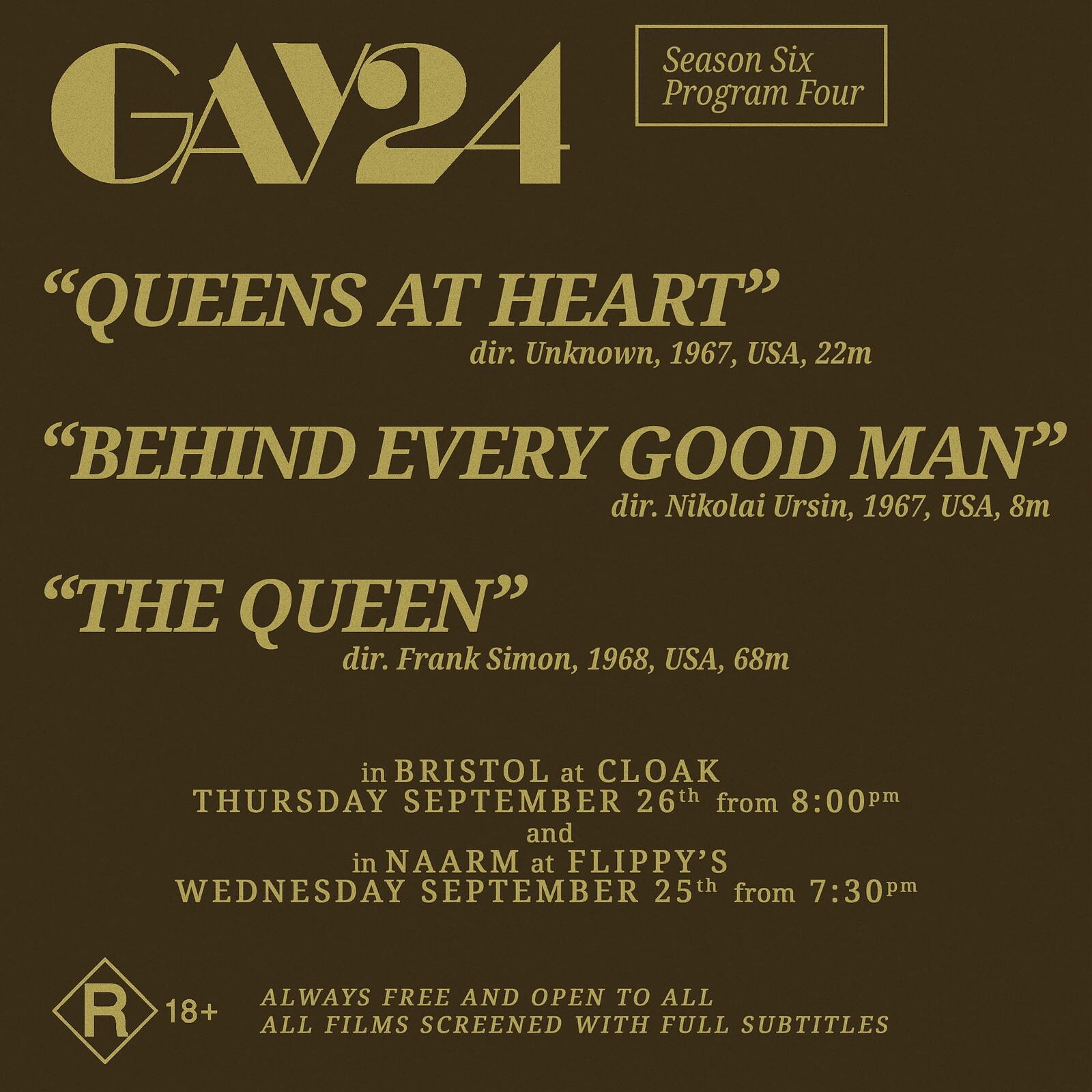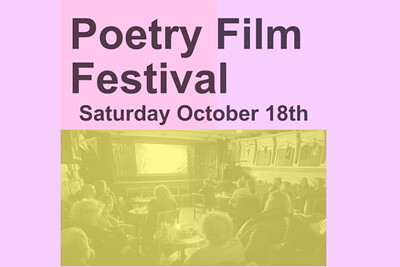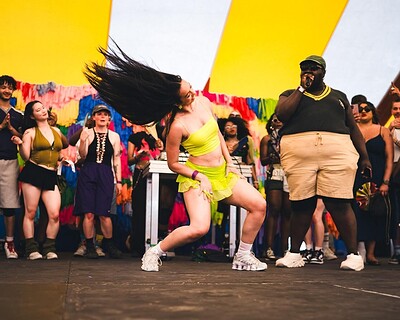
A event held at Cloak on Thursday 26th September. The event starts at 20:00.
Our three items in this program explore a vibrant period for trans images on film, all of them being produced in the time between the Compton's Cafeteria Riot and Stonewall. It is within these films that we can see some of the very first examples of trans people speaking to their own experiences and owning their own narratives, albeit through the lens of (and often in opposition to) the cis film-makers who made them. Each one is a beautiful document of a wider culture that was beginning to awaken; a time when trans people were coming further out of the closet and into the public eye. All three also speak to the wild divisions in access and mobility that come with the differences of race and class; within them we see clearly the stark differences in which trans people are considered "respectable", and which bodies are prioritised within these burgeoning trans communities.
Much is unknown about 1967's "Queens At Heart" - no negatives survive, nor does any directing credit. The film, originally paired with the exploitation film "She-Man: A Story of Fixation", features a sit down interview between four trans women and a cis man who purports to be undertaking a "psychological project". This man acts as the conduit between these women and the curious heterosexual audience, asking a series of increasingly intrusive questions of them. It is within this crass framework that the women are able to express their feelings, hopes, and desires for their future, all the while not holding back on their obvious distaste for the interviewer and his line of questioning. Despite it's exploitative structure, we are able to gain a clear vision of who these women are and where they feel they sit within the world. It is very similar in structure to the previously screened "Changes", by Pat Rocco, who's subject Jennifer Michaels expresses a similar palpable disdain for the whole ordeal whilst affirming her own humanity and grace.
"Behind Every Good Man" is a comparatively much kinder film in which a black trans woman speaks to her experiences living in 1960s New York. This remarkable document was the student film of Nikolai Ursin, and follows its subject as she speaks of her desires for connection and dramatises a meet cute between her and a handsome stranger on the street. It is a hopeful film that nevertheless doesn't shy away from the realities of living as a trans woman of colour, and feels incredibly ahead of it's time (especially in contrast with its contemporaries).
Our feature is the cult classic cinéma vérité documentary "The Queen", a chronicle of the build up and execution of the 1967 Miss All-American Camp Beauty Pageant in New York. Using pageant organiser Flawless Sabrina as its fulcrum, the film captures a revolving cast of queens sharing their lives with each other and the audience. Some of its most tender moments occur within hotel rooms and backstage, in which we see people who have travelled from all over America basking in the company of their sisters, finally surrounded by people who look and think and feel like them. It isn't until the film's final scenes that the simmering racial tension of the pageant is dragged into the foreground by the incredible Crystal LaBeija, a crescendo that leads directly into Crystal forming the House of LaBeija and laying the foundations for modern house and ball culture. As such, The Queen is a essential companion piece to Paris Is Burning; a document of what modern ballroom culture was pushing back against.
Entry requirements: no age restrictions
Much is unknown about 1967's "Queens At Heart" - no negatives survive, nor does any directing credit. The film, originally paired with the exploitation film "She-Man: A Story of Fixation", features a sit down interview between four trans women and a cis man who purports to be undertaking a "psychological project". This man acts as the conduit between these women and the curious heterosexual audience, asking a series of increasingly intrusive questions of them. It is within this crass framework that the women are able to express their feelings, hopes, and desires for their future, all the while not holding back on their obvious distaste for the interviewer and his line of questioning. Despite it's exploitative structure, we are able to gain a clear vision of who these women are and where they feel they sit within the world. It is very similar in structure to the previously screened "Changes", by Pat Rocco, who's subject Jennifer Michaels expresses a similar palpable disdain for the whole ordeal whilst affirming her own humanity and grace.
"Behind Every Good Man" is a comparatively much kinder film in which a black trans woman speaks to her experiences living in 1960s New York. This remarkable document was the student film of Nikolai Ursin, and follows its subject as she speaks of her desires for connection and dramatises a meet cute between her and a handsome stranger on the street. It is a hopeful film that nevertheless doesn't shy away from the realities of living as a trans woman of colour, and feels incredibly ahead of it's time (especially in contrast with its contemporaries).
Our feature is the cult classic cinéma vérité documentary "The Queen", a chronicle of the build up and execution of the 1967 Miss All-American Camp Beauty Pageant in New York. Using pageant organiser Flawless Sabrina as its fulcrum, the film captures a revolving cast of queens sharing their lives with each other and the audience. Some of its most tender moments occur within hotel rooms and backstage, in which we see people who have travelled from all over America basking in the company of their sisters, finally surrounded by people who look and think and feel like them. It isn't until the film's final scenes that the simmering racial tension of the pageant is dragged into the foreground by the incredible Crystal LaBeija, a crescendo that leads directly into Crystal forming the House of LaBeija and laying the foundations for modern house and ball culture. As such, The Queen is a essential companion piece to Paris Is Burning; a document of what modern ballroom culture was pushing back against.
Entry requirements: no age restrictions
Tickets for similar Bristol events.

